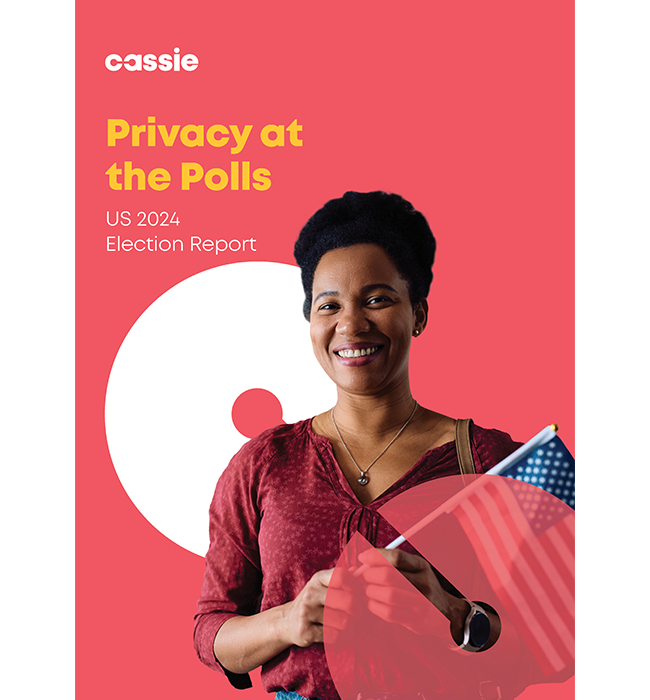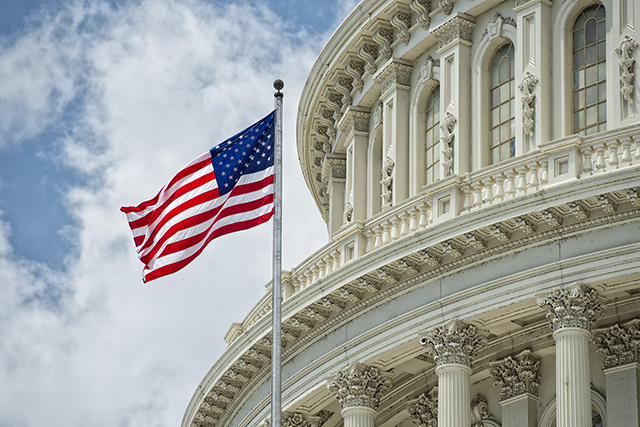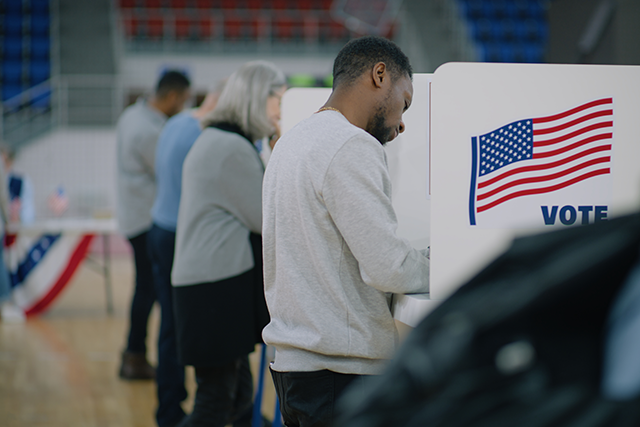Is AI casting a shadow of confusion over the 2024 election?
Posted: August 7, 2024
Generative AI has exploded in popularity since the last U.S. presidential election. This year, as campaigns experiment with AI-powered technology to generate materials like images, videos, voice calls, and more, many voters are concerned and confused about AI’s broader implications.
What happens when AI-generated content is misleading or inaccurate? What if it uses personal data to create materials geared towards influencing voters on November 5th? Is it ethical to use AI for political gain?
Questions like these led 81% of respondents to Cassie’s Privacy at the Polls Report to share they view AI as a threat to election security. 26% of these respondents listed it as a major threat. Note: Baby Boomers were 69% more likely than other generational cohorts to view AI as a major threat.
With targeted political advertisements on the rise, voters are wary of materials that leverage their personal data to serve them political content – especially in the era of AI.
Real or AI?
As generative AI becomes more popular, it’s also becoming more advanced – so much so that 34% of voters aren’t confident in their ability to identify whether an advertisement was generated by AI. And while 21% of respondents told Cassie they’ve spotted AI being used in 2024 campaign materials, the majority of voters (61%) remain unsure if they’ve seen AI use this year.
AI-generated materials aren’t always immediately recognizable as such. This technology is getting better and better at creating realistic images and mimicking natural human speech. It’s leading many voters to admit they aren’t confident in their ability to identify AI-generated photos (27%), videos (29%), and voice calls (36%).
This should be a major cause for concern. When voters can’t tell if an image, video, or phone call is real, it opens the door for bad actors to take advantage of their trust. Opposing campaigns could use AI to generate videos of rival candidates making harmful statements, or create false endorsements from celebrities and other influential figures.
Data privacy takes center stage
Voters are rightfully worried about how their data is being used to inform AI-powered campaigns. This is one of the positive impacts AI is having on the 2024 election cycle: 81% of voters say the rise of AI makes them more inclined to care about data privacy legislation/political platforms than they have in previous election years.
AI and data privacy regulations are slow going. So, as we grow closer and closer to Election Day, we must give voters greater control over how their data is used, stored, and shared for political purposes.
The average voter may not be an AI or data privacy expert, but with increased focus on consent and preference management, we can give individuals the power they need to decide how campaigns use their personal information.

Download our Privacy at the polls: US 2024 election report
As the 2024 US election nears, data privacy is becoming a critical issue for voters. Our newest report delves into the connection between voter behavior and data privacy, revealing some surprising findings:
- 4 in 10 voters rarely or never consider how political websites use their personal data.
- 46% of voters have noticed an increase in targeted political ads this election cycle.
- 81% of voters say that the rise of AI makes them more concerned about data privacy legislation and political platforms than in previous election years.
Read the full report now!

